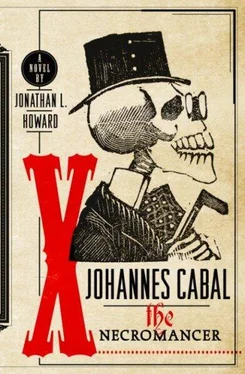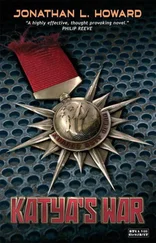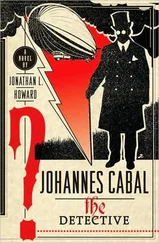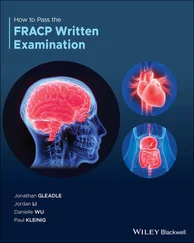“You started killing them.”
“Yes, I did. Even that was a disappointment. I’d hoped for some sort of great emotion from those whose lives I took. After all, being murdered for no other reason than because a pallid little man — I am under no illusions as to how you perceive me — wants to prove a point, you would think it would make people angry at the very least. It would seem unfair, would it not? But all I ever got was faint expressions of surprise. You know, I don’t believe they noticed I had murdered them. I really don’t. They just seemed faintly put out, as if it were a bit of bad luck, an act of God. ‘Oh, my carotid artery has been severed with an open razor. I knew I should have cut down on greasy foods.’ ‘Botheration, I’m being belaboured with a fourteenth-century battleaxe. What are the odds, eh?’ I was standing there in front of them with a sub-machine gun or backing over them with a rotary cultivator or whatever and shouting, ‘I am Alfred Simpkins! I am killing you! Will you please take a little bit of bloody notice, please?’ But they never did. So I kept going. Hope springs eternal, after all.”
“You knew you’d be caught, surely?”
“Well, one would think so, wouldn’t one? Do you know, I’ve sat in my living room covered head to toe in blood, cradling the murder weapon in my hands — already labelled ‘Exhibit 1’ — and been interviewed by your colleagues. Had I seen my next-door neighbour recently? Indeed, I had. A little under three hours previously, when I’d bludgeoned her to death with this very knobkerrie, officer. Well, sir, we have other enquiries to make. Good day. They hadn’t noticed. Nobody notices me. Except you, Detective Inspector Barrow. You notice me. The first time you saw me, you knew I’d done it. Do you want to know what I would like to do more than anything, Detective Inspector Barrow?”
“No.”
“I’d like to kill you.” Barrow had looked at Simpkins hard. “No animosity. Simply because you would notice yourself being murdered. That would be my little bit of affirmation of my existence. Then I would never have to kill again.”
Barrow had denied Simpkins’s request and not been diplomatic about it. Simpkins was sent down to Laidstone for so many life terms that, even with good behaviour, he was unlikely to be out before the next ice age. Simpkins’s attitude towards him had changed then; it had become personal.
Barrow paused, curious, and wondered why he was thinking about Simpkins just now, of all times. Perhaps it had been that little man he’d seen walk by in the crowd. He’d been the absolute living spit; the resemblance had just started all these thoughts rolling around his head. All of which was very nostalgic in a forensic sort of way, but it wasn’t getting him any closer to finding somewhere safe and stopping Cabal. “Stopping Cabal” seemed very simple when it was only two words. The implications were horrifying in their complexity, however. Stop him how? Stop him from doing what? Stop him when? First things first, he thought, and broke cover.
Walking like a man who has every right to be going into the back of a sideshow, he went into the back of a sideshow. I just need a dark corner, he thought, somewhere I can … He paused, inhaled through his nose. What was that smell? An odd, synthetic sour odour. He had a rapacious memory, in that once a sensation had been experienced it was held for good, and so he knew he’d smelled something similar before. Unfortunately, his rapacious memory hung on to the details, too, refusing to pass them on to the cognitive centres, and so he couldn’t quite recall where. He twitched a curtain gently to one side and peered through the gap. What he saw rooted him to the spot. He was on the wrong side of the velvet rope that separated the visitors from an exhibit, if that was the right word. Actually, on this occasion, it was definitely the right word. Most definitely. Exhibitionism was the whole point here.
On the far side of the rope, Barrow could make out the shadowy forms of the paying customers. They clung to the area of low light — dim, flickering electrical faux candles showing only form but no detail — loath to be seen and identified. This was a place that many wanted to visit but nobody wanted to be caught in. The reason for the guilty interest lay languorous and lithe upon a chaise-longue, regarding the gawking and sweating mass with an insouciance that slid easily beyond human limits. Since his conversations with the brothers Cabal this evening, it was as if the scales had fallen from Barrow’s eyes. For example, he knew without hesitation — as surely as Horst had known about Cleopatra earlier the same evening — that, whatever else Layla the Latex Lady was, she wasn’t a lady. She wasn’t even human.
There was something in the way that she moved, slowly and deliberately and without apparent recourse to such human fripperies as joints, that was reptilian yet still warmly mammalian enough to provoke a low hum of sighs and wetting of lips from her admiring audience — the white noise of desire. Her skin was dark, dark grey, smooth and gently reflective like that of a young seal fresh from the sea, and as she moved it made a gently organic noise, surface whispering over surface. Barrow inhaled again. That was the sour smell, rubber, and the slightly sweeter smell was talcum powder. She must get through pounds of the stuff every day, he thought. The smooth skin ran over every square inch of her body except her neck and head, which rose from the encompassing sheath like the painted portion of a gunmetal statue. As he watched her, he realised, without any particular sense of surprise, that there was no clear interface between the rubber and flesh: one simply seemed to merge into the other. The only details upon her body were the high heels that seemed to grow organically from her feet, as if part of her biology — as, indeed, they were. No other detail was sharply delineated, not even her fingernails.
Barrow was sorry for that. More detail would have allowed him to close down the whole carnival on public-morality grounds. No such luck; Cabal wouldn’t make a mistake like that. Still, he found himself wondering what kind of details they might have been. Her body was like something that Vargas might have dreamt on a particularly humid night. He clenched his eyes shut and told himself that there were people out there, and possibly in here, who would cheerfully see him dead, and a little bit of focus would be gratefully received.
Layla watched the audience with amused arrogance. A typical crowd: mainly men, with a few women, some of the latter asking themselves confused questions. She breathed in and tasted their pheromones, borne by the faint breezes that moved sluggishly through the sideshow. Their scent was fainter than usual, the wind was from the north, but she detected something else, and it was delicious. She found the chemical traces in the air and assiduously picked them out with the tip of her darting tongue, to muttered approval from her admirers, then drew them along the roof of her palate as a connoisseur takes time with a fine wine. Fear. Somebody there was in fear of his or her life, and the taste of it was exquisite. She closed her eyes and allowed the flavour to separate into its components: male; middle-aged; occasional pipe smoker; behind her. She knew all about the search tonight, and now knew exactly where Frank Barrow was. She also knew that she had less than an hour’s existence left. Really, she should alert Johannes Cabal; that was the right thing to do. On the other hand, she had sprung from Satan’s very own personal blood, and this meant that the right thing to do wasn’t always the thing that was done. Let Cabal rage. She was going to have some fun.
Barrow watched as Layla gestured to the bodyguard who stood to one side and whispered in his ear. “Right, show’s over,” he was bellowing at the audience even as he straightened up. “Ain’tcha got homes t’ go to?” His manner implied that if anybody didn’t, then he knew a nice hospital that they could spend the next few weeks in as an alternative. With a collective sigh and many wistful glances, they filed out, followed by the bodyguard.
Читать дальше










